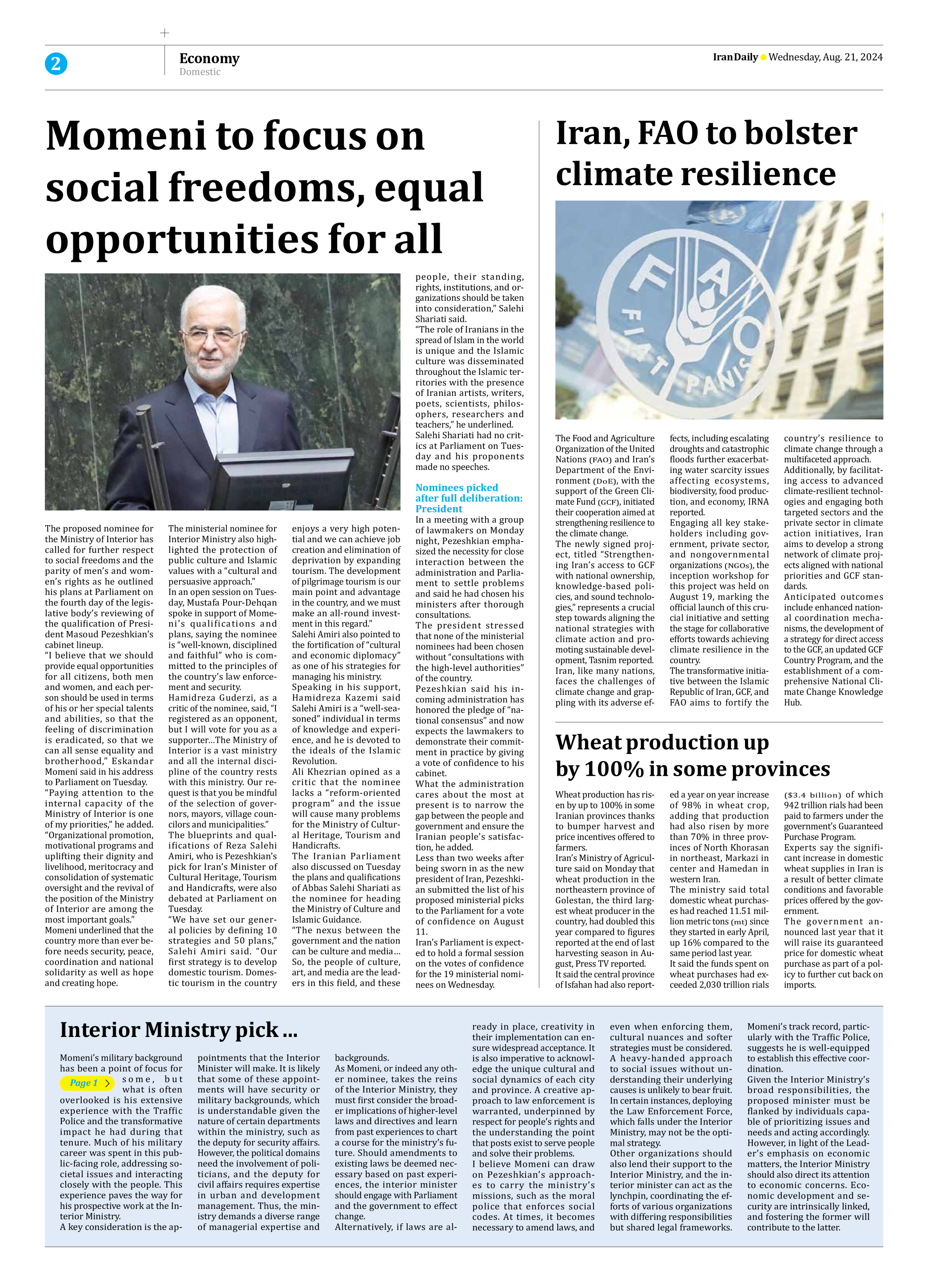
Interior Ministry pick ...
Page 1
Momeni’s military background has been a point of focus for some, but what is often overlooked is his extensive experience with the Traffic Police and the transformative impact he had during that tenure. Much of his military career was spent in this public-facing role, addressing societal issues and interacting closely with the people. This experience paves the way for his prospective work at the Interior Ministry.
A key consideration is the appointments that the Interior Minister will make. It is likely that some of these appointments will have security or military backgrounds, which is understandable given the nature of certain departments within the ministry, such as the deputy for security affairs. However, the political domains need the involvement of politicians, and the deputy for civil affairs requires expertise in urban and development management. Thus, the ministry demands a diverse range of managerial expertise and backgrounds.
As Momeni, or indeed any other nominee, takes the reins of the Interior Ministry, they must first consider the broader implications of higher-level laws and directives and learn from past experiences to chart a course for the ministry’s future. Should amendments to existing laws be deemed necessary based on past experiences, the interior minister should engage with Parliament and the government to effect change.
Alternatively, if laws are already in place, creativity in their implementation can ensure widespread acceptance. It is also imperative to acknowledge the unique cultural and social dynamics of each city and province. A creative approach to law enforcement is warranted, underpinned by respect for people’s rights and the understanding the point that posts exist to serve people and solve their problems.
I believe Momeni can draw on Pezeshkian’s approaches to carry the ministry’s missions, such as the moral police that enforces social codes. At times, it becomes necessary to amend laws, and even when enforcing them, cultural nuances and softer strategies must be considered. A heavy-handed approach to social issues without understanding their underlying causes is unlikely to bear fruit. In certain instances, deploying the Law Enforcement Force, which falls under the Interior Ministry, may not be the optimal strategy.
Other organizations should also lend their support to the Interior Ministry, and the interior minister can act as the lynchpin, coordinating the efforts of various organizations with differing responsibilities but shared legal frameworks. Momeni’s track record, particularly with the Traffic Police, suggests he is well-equipped to establish this effective coordination.
Given the Interior Ministry’s broad responsibilities, the proposed minister must be flanked by individuals capable of prioritizing issues and needs and acting accordingly. However, in light of the Leader’s emphasis on economic matters, the Interior Ministry should also direct its attention to economic concerns. Economic development and security are intrinsically linked, and fostering the former will contribute to the latter.







